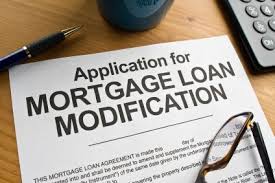 Our firm is occasionally consulted by a party against whom a judgment of foreclosure has been entered. Prior blog posts have discussed the foreclosure process in detail. Among the last actions to be taken in a foreclosure case are the issuance of a judgment of foreclosure and the actual foreclosure sale. This post will discuss the few options available to a foreclosure defendant at this point.
Our firm is occasionally consulted by a party against whom a judgment of foreclosure has been entered. Prior blog posts have discussed the foreclosure process in detail. Among the last actions to be taken in a foreclosure case are the issuance of a judgment of foreclosure and the actual foreclosure sale. This post will discuss the few options available to a foreclosure defendant at this point.
The issuance of a judgment in foreclosure by the Supreme Court of the County in which the property is located usually occurs at two points in the foreclosure litigation. The first point would be if the defendant fails to answer the initial foreclosure Summons and Complaint, and the lending institution is granted a judgment by default. If the default was inadvertent, and the defendant has a reasonable excuse for not answering, as well as a meritorious defense, it is possible for the defendant’s attorneys to file a motion to vacate the default judgment.
Another point in the litigation allowing for a foreclosure judgment would be when the plaintiff moves for summary judgment and the motion is granted by the Court. Once a final judgment is submitted to the Court and signed by the Judge, the foreclosure process is in its final stages. The plaintiff must advertise a public foreclosure sale in a local newspaper for four weeks prior to the sale, and then conduct the sale, usually at the Supreme Court Courthouse in the county in which the property is located.
 New York Real Estate Lawyers Blog
New York Real Estate Lawyers Blog









 Pope Francis’ first visit to the United States has managed to inspire numerous people. Yesterday’s speech before Congress mesmerized all of those in attendance, regardless of their religious or political affiliation. The Pope’s message has been unifying to all witnesses, which is why many people have been so excited by his visit, even though many of us are not Catholic and may not agree with his specific positions.
Pope Francis’ first visit to the United States has managed to inspire numerous people. Yesterday’s speech before Congress mesmerized all of those in attendance, regardless of their religious or political affiliation. The Pope’s message has been unifying to all witnesses, which is why many people have been so excited by his visit, even though many of us are not Catholic and may not agree with his specific positions. A
A 